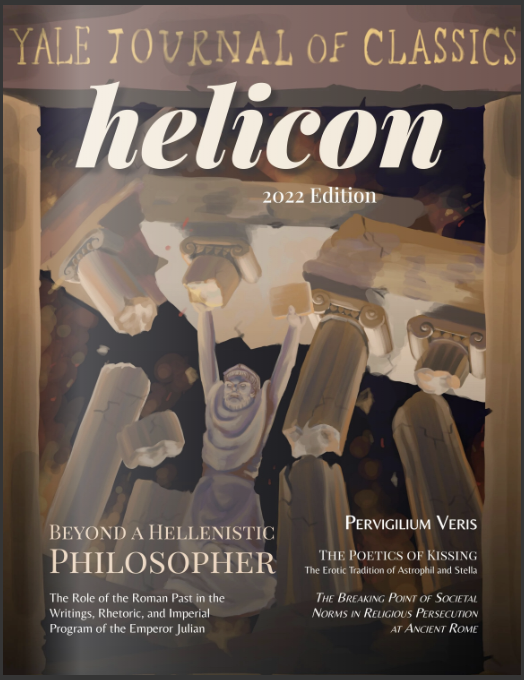By Elaine Loft
The World Language Department announced that Leah Munoz ’24 has been published in the Yale Undergraduate Journal of Classics, a digital magazine. The journal aims to “provide accessible content in order to bridge perceived gaps between Classics and contemporary discussions.” Munoz’s article, entitled, “Were Roman Freedmen Truly Free?” appeared in the September 5, 2023 issue of the magazine.
Karilyn Calvert, a former Derryfield faculty member, said of Munoz’s work,
“This accomplishment is no small feat…especially given where this project started. Leah took inspiration from her AT Latin Prose Gold Standard Project last spring and significantly expanded her research into freedmen by examining satire, laws, public perception, and inscriptions to craft a robust paper arguing, as her title aptly states, that freedpeople were not truly free in the ancient Roman world.
Leah worked tenaciously and tirelessly this summer through multiple rounds of edits with me, before sending her draft to the editors at the Helicon, after which point she had more comments to process prior to publication. All the while, I marveled at how excited Leah was to work on each new draft.”
In her essay’s introductory paragraph, Munoz introduced the premise that freedmen were far from “free.”
“In the midst of chaos, corruption, and political division during the Roman Republic (509 B.C.E.- 27 B.C.E.), freedmen in Roman society were viewed as inferior. Their former status as slaves was undoubtedly uncomfortable for many Romans, resulting in significant social and legal discrimination against freedmen. The macula servitutis, or the “stain of slavery,” was a permanent marker on freedmen and prevented them from enjoying liberties that other Roman citizens experienced.”
After discussing the legal components of manumission, and noting that among other things freedmen were restricted from marrying into different social classes, Munoz discussed the legislation she composed to combat the restrictions of a freedman’s life in Roman society. The conclusion of her essay asserts,
“Nevertheless, slavery in Roman society–and, really, in any society—is the cancer of prejudice, racism, and discrimination. The vestiges of slavery are a greater challenge to end than the institution of slavery itself in that unconscious and conscious discrimination will be the limiting factor for any society, or any individual, from continuing on the path to greater success and prosperity. Incessant and intentional reflection on the past and present are required for individuals to grapple with the complexities of how thousands of years of slavery in various cultures have left us today engaging with the meaning of equality and how we can ensure equality for all citizens.”



